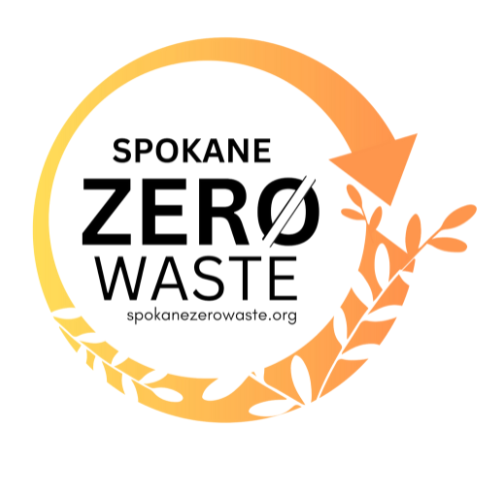April Newsletter
We love April because of the longer days, mild temperatures, wildflowers, and singing birds. It’s also our favorite month because it’s Earth Month! Started in 1970 by a bipartisan team of US Representatives concerned about the deteriorating environment, Earth Day, April 22nd, is celebrated around the world and many groups have expanded their activities to the entire month of April. These days, it may be hard to imagine bipartisan political support for anything, but it’s good to remember that there are people of all political persuasions who care about protecting our common home.
Locally, there are several opportunities for you to get involved in planting trees, cleaning up trash, or participating in one of our Mend-it Cafe’s or our Earthday ReCraft fair! Whether you are a seasoned environmental activist or just starting to want to do something for Earth there is a place for you to contribute. Reading this newsletter and talking with others about what inspires you is a great place to start!
Reducing consumption
We can’t say it enough! One of the most effective ways to help our planet is to simply reduce our consumption. Earth provides for us and will continue to do so unless we take too much - too many fossil fuels (gasoline, diesel, plastics and other synthetic materials like polyesters), too much topsoil (from unsustainable farming practices), and too many natural resources in general. Reducing consumption does NOT mean we have to go without or live a poor quality of life. We have a robust thrifting and reuse scene in Spokane - rather than purchasing something new, check out a thrift store or reseller. If you really can’t find what you want, buying a high quality piece of clothing or other item will likely mean the item will last longer - making it cheaper and better in the long run! From our point of view the first thing to look for in a garment is what it’s made of. As a zero waste organization we prioritize natural fibers such as wool, linen, hemp, and cotton over almost any other quality as these materials can compost back into soil. But there are lots of other details to check. For a deep dive into quality garment construction issues check out this video, if you prefer a quick list we’ve got that for you too. High quality clothing has a timeless style that you can wear year after year. These items tend to be more expensive but not all expensive clothes are high quality. Learning to feel and see the difference will help you make good investments in what you put on your body.
Did you know? The fashion industry accounts for 8 - 10% of global greenhouse gas emissions (GHGE) according to the United Nations. That is more than aviation and shipping combined! More GHGE = more heat trapped = more extreme weather events. Because fossil-fuel based materials are used in so much clothing, reducing our consumption of clothes reduces our use of fossil fuels! Hint: any item of clothing that is not hemp, linen, cotton, or wool contains fossil fuels.
Spring Gardening
If you’ve never tried growing your own food, we invite you to try. If outdoor space is limited, start with something that doesn’t require much space, such as tomatoes, potatoes, or herbs. Libraries around Spokane county offer free seed swaps and plant swaps so you can try out gardening with little upfront investment. The Shadle library will be hosting its annual spring plant swap and plant giveaway on April 26, 2025. If you’re interested in gardening but are unsure of where to start, take a free gardening class!
Three ways to compost
1-Traditional (Cold) Composting
Overview:
This is the classic method of composting where organic materials are layered and left to decompose naturally over time, with minimal intervention. It doesn’t rely on high temperatures or worms — just a balance of materials, moisture, air, and time.
How It Works:
Composting is a biological process where microorganisms (bacteria and fungi) break down organic waste into a rich, soil-like material called humus or finished compost. These microbes need four key elements to thrive:
Carbon (browns): provides energy
Dry leaves
Straw/hay
Shredded cardboard or paper
Sawdust (untreated wood)
Corn stalks, wood chips
Nitrogen (greens): supports microbial growth
Vegetable scraps
Fruit peels
Grass clippings (fresh)
Coffee grounds and filters
Water: keeps everything moist for microbe activity
Air: helps aerobic microbes do their job efficiently
Target ratio:
Aim for about 1 part green to 2–3 parts brown to keep the pile balanced and odor-free.
2-Vermicomposting (Worm Composting)
How it works:
Red worms (like red wigglers) break down food waste in a bin, creating nutrient-rich "worm castings."
What to include:
Soft veggie/fruit scraps
Coffee grounds, eggshells, paper
No citrus, meat, dairy, or oily food
Tips:
Keep bin moist and well-ventilated
Feed small amounts regularly
Best kept in shaded or temperature-controlled area (ideal: 55–77°F)
Timeframe: 2–3 months for finished worm compost
3-Trench Composting
How it works:
Bury food scraps directly in garden soil by digging a trench or hole.
What to include:
Kitchen scraps (no meat/dairy), shredded paper, yard waste
Tips:
Dig 12" deep to deter pests
Ideal for fertilizing specific garden beds
No turning required
Timeframe: 1–6 months
Find out more about composting at the annual Arbor Day Celebration and Spring Compost Fair will take place at the John A. Finch Arboretum Saturday, April 26 11 a.m.-2 p.m. Spokane County residents can learn about composting. Participants who live within Spokane County can receive a free compost bin after completing the activity stations. Bins are limited to one per household. Proof of residence is required, and supplies are limited.
Upcoming Events
Get to Know Your Sewing Machine Class
SAT, April 26
2pm - 4pm
Don’t miss out on this upcoming Class!
Join Us for an EarthDay Celebration
A fun event for the entire family!
April 26th 2-5pm West Central Abby Spokane






